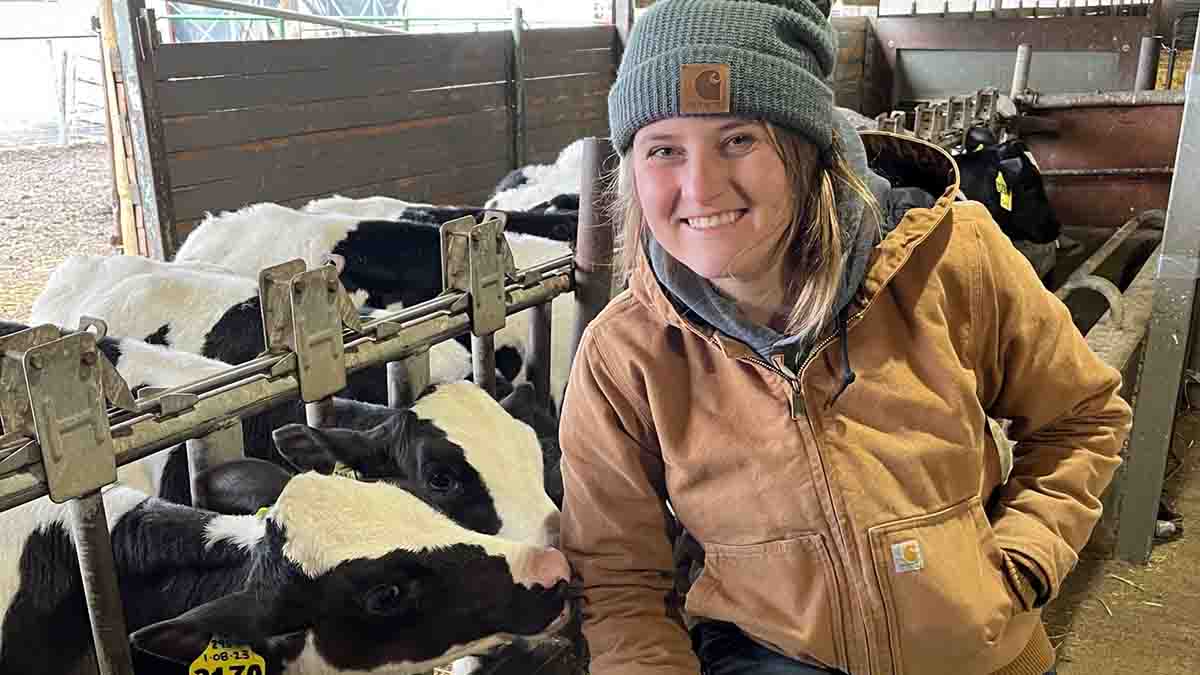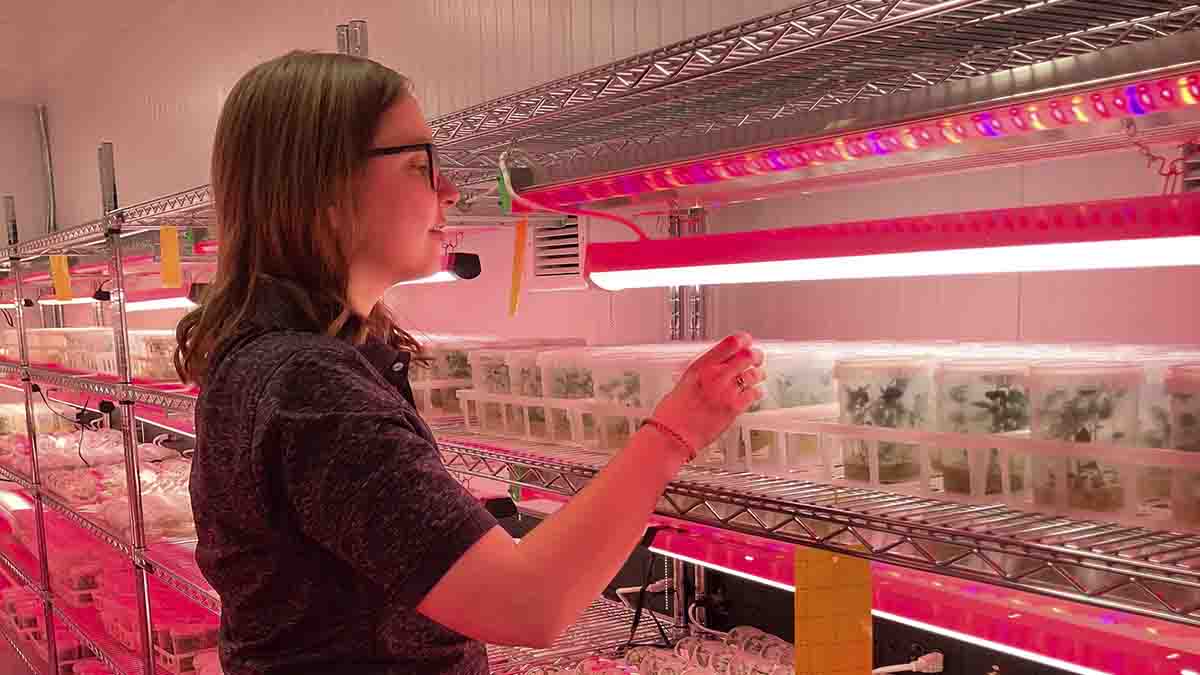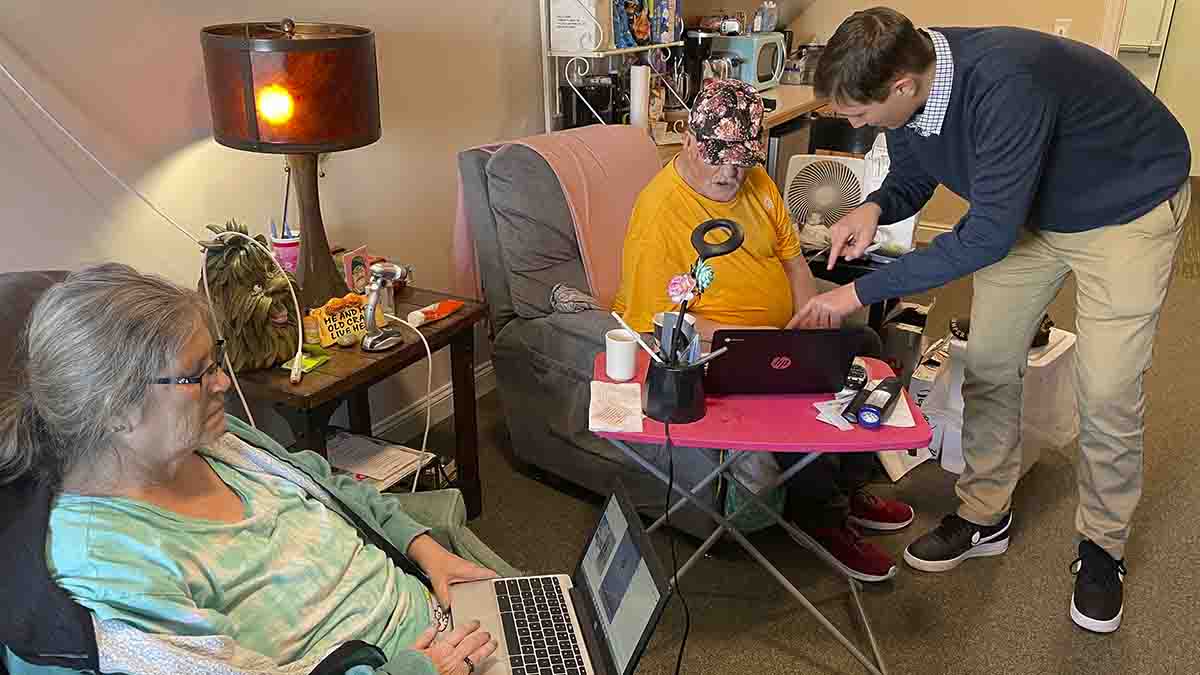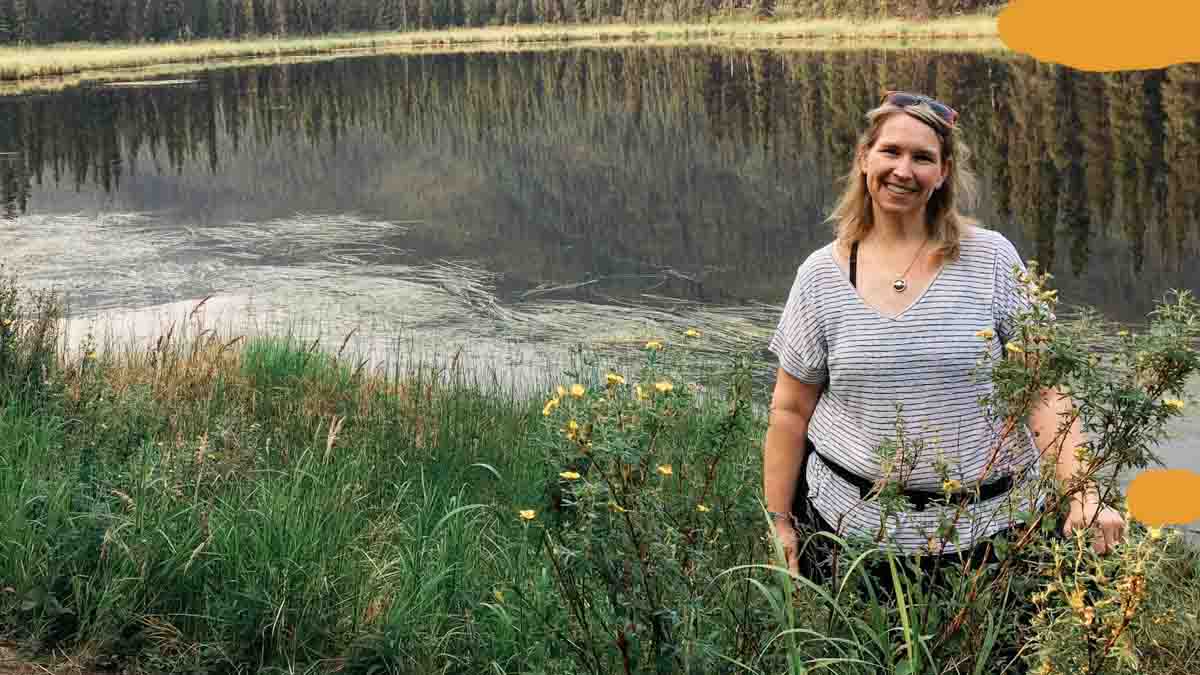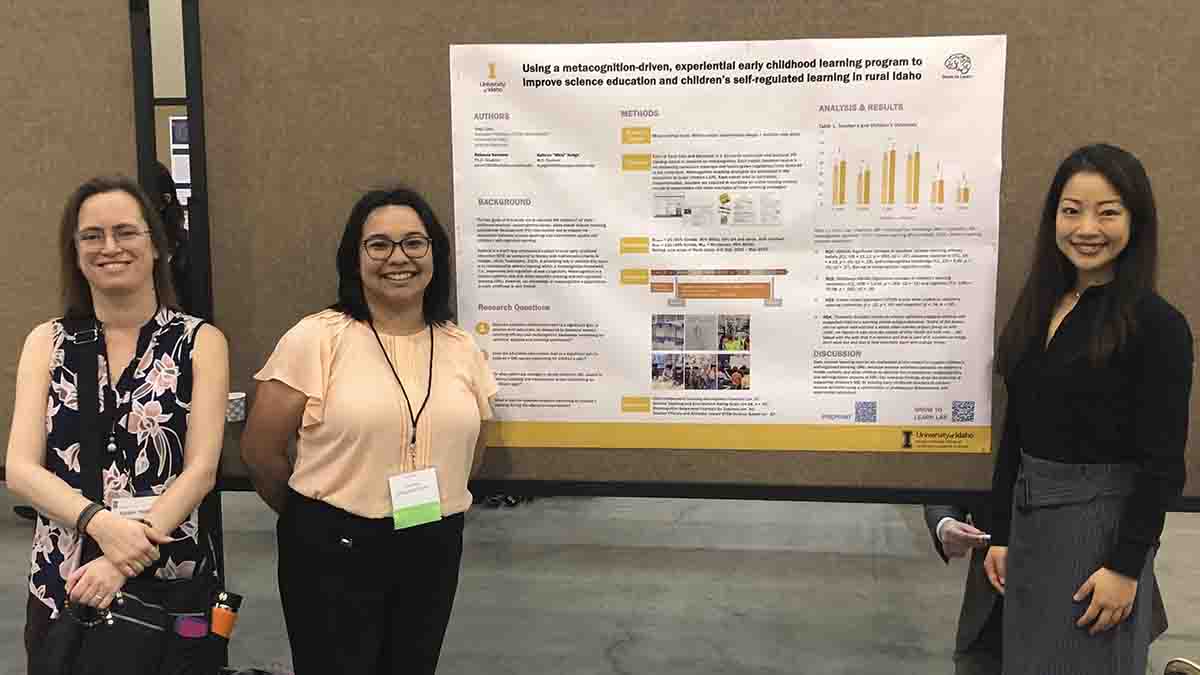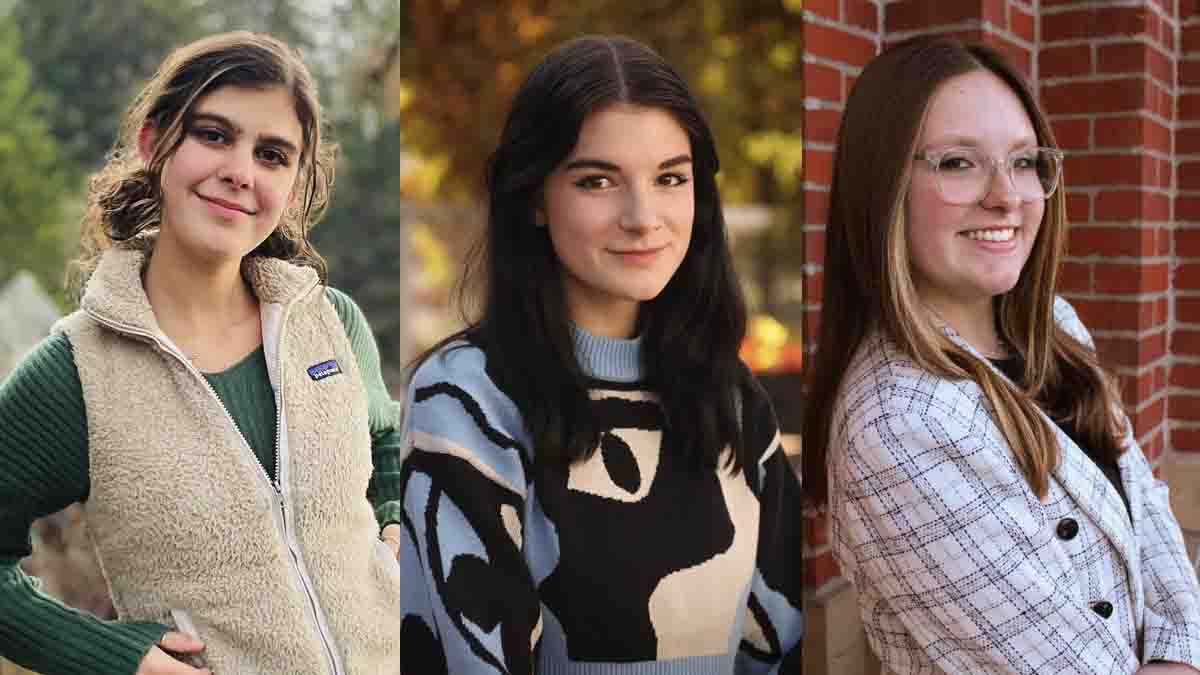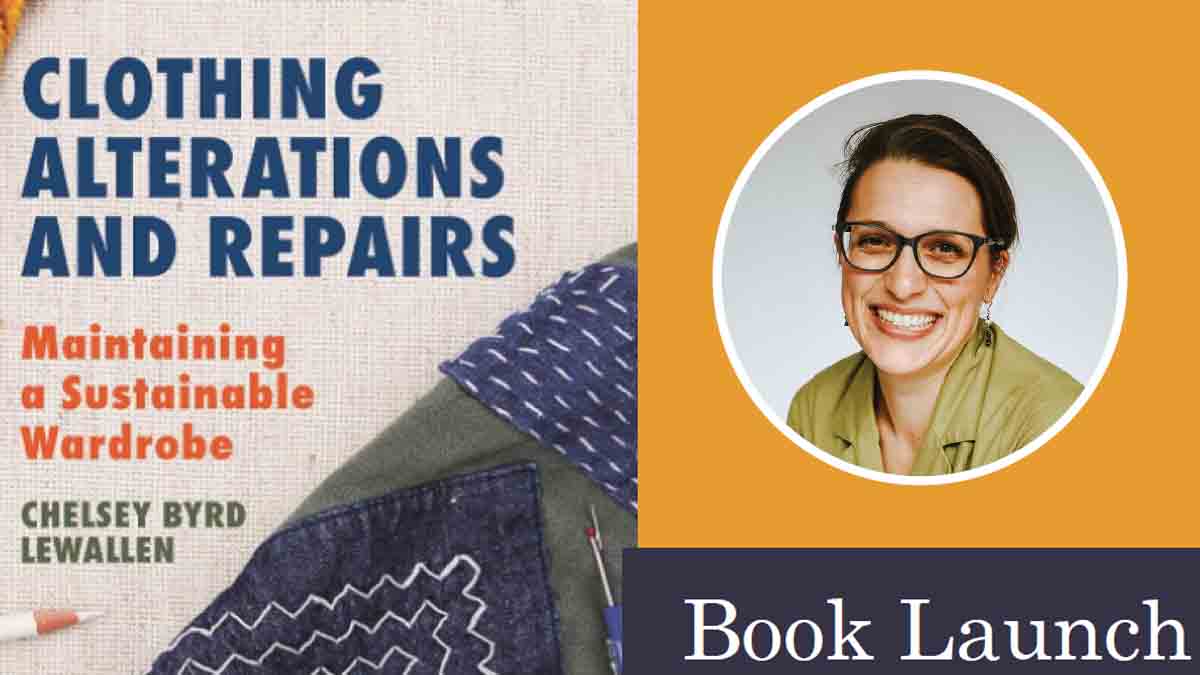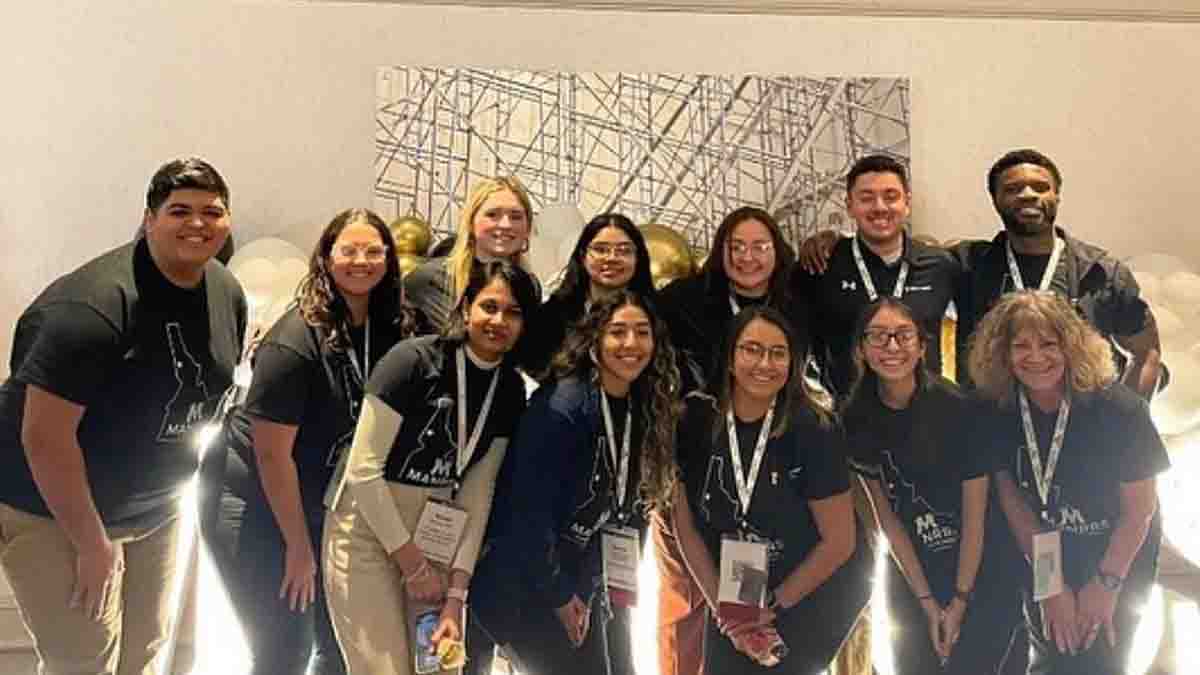Catching Up with CALS — April 3, 2024
Dean's Message — Ranch Opens Range of Possibilities
It’s common practice among Idaho ranchers to graze their cattle on rangeland during warmer months and move them back to private pastures for winter. Since 2019 — when CALS and the College of Natural Resources began jointly managing a unique research, education and outreach facility near Hailey known as Rinker Rock Creek Ranch — our researchers have had the luxury of implementing this real-world approach to livestock management. We move about half of the herd, or roughly 160 cow-calf pairs plus additional replacement heifers, from pastures at our Nancy M. Cummings Research, Extension and Education Center in Salmon to graze the foothills and valley floors at Rinker from mid-May through mid-October. Rinker, which comprises 10,400 acres of private ground and 11,000 acres of public grazing allotments, has broadened our research scope, improved our understanding of the intricacies of rangeland management and conservation while making our findings more relevant to producers. A diverse group of stakeholders representing conservation groups, the ranching industry, the University of Idaho and state and federal agencies serve on the ranch’s advisory board and collaborate on interdisciplinary, scientific studies. Students gain hands-on experience in the field as interns or graduate researchers, working alongside world-class faculty. The ranch is also a true asset to the surrounding community, hosting events that are open to the public and welcoming recreationists to explore the landscape.
In mid-March, I had the pleasure of traveling with CALS Development Director Eric Billings to Costa Mesa, California, where we met with Ken Rinker, whose family’s generosity made the establishment of this living laboratory possible. At one point, the family planned on subdividing and developing the ranch. Instead, however, they chose to protect the ecosystem in perpetuity, partnering with the Nature Conservancy and Wood River Land Trust to establish conservation easements barring development. In 2016, U of I launched the pilot phase of research at the ranch, introducing the first cattle from Salmon. Three years later, U of I signed a 99-year lease on the property. Research and outreach activity at the ranch has steadily grown. To date, Rinker has supported 20 different research projects, 15 graduate students and 10 undergraduate interns. The ranch hosts an annual monitoring blitz in late June, during which more than 30 participants record data from monitoring sites to assess changes in the landscape over time. The ranch has also replaced more than 20 miles of barbed-wire fence with wildlife-friendly, electrified lay-down fencing, developed by ranch staff as a demonstration for surrounding ranchers. Several additional research projects are planned at Rinker, including studies on how beaver dams affect sage grouse brood rearing, how replacement heifers respond to irrigated pasture versus rangeland conditions, and research on the long-term resilience of sagebrush steppe plant communities and wildlife to the use of herbicides for controlling annual grasses. “What Rinker Rock Creek brings to the table is a rangeland setting. A lot of producers graze their cattle on rangeland and they have questions and concerns relative to how cattle are best raised on rangeland situations,” explained Cameron Weskamp, the facility’s operations manager.
During our visit in California, I updated Ken Rinker on the many accomplishments we’ve made at the ranch, as well as some significant forthcoming investments to make it an even better asset for researchers and residents of the surrounding Wood River Valley. Using $1.3 million in federal community project funds awarded toward the ranch in 2022, thanks to the leadership of CNR Dean Dennis Becker and support from Idaho Rep. Mike Simpson, we will begin renovating Rinker’s century-old barn this summer. The ranch currently lacks indoor facilities, so classes and lectures must take place in the elements. The barn, which is dilapidated and has never undergone major repairs, will be structurally secured and will have a new concrete floor poured. Currently used for storage, the barn will soon have space for indoor lectures and classes. Graduate students and researchers will use it for computer work and uploading data. The barn should be ready for its heightened use by the fall of 2025. Furthermore, solar panels will power the barn, and a new Starlink internet service will provide Rinker’s first digital access. We’re grateful for the tremendous asset we have in Rinker Rock Creek Ranch and the family who made it all possible. We have big plans for Rinker and we’re making great strides toward maximizing the rewards we can reap from this outstanding resource.
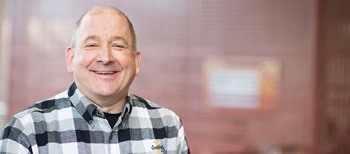
Michael P. Parrella
Dean
College of Agricultural and Life Sciences
By the Numbers
It’s Vandal Giving Day! During last year’s Vandal Giving Day, CALS raised $29,270 from 155 gifts, and University of Idaho Extension 4-H Youth Development raised $3,921 from 73 gifts. Thus far in Fiscal Year 2024, CALS has raised $9.1 million toward a $9.5 million fundraising goal. Furthermore, U of I has raised $429.4 million toward the $500 million goal of its capital campaign, Brave. Bold. Unstoppable, which will conclude at the end of 2025.
Our Stories
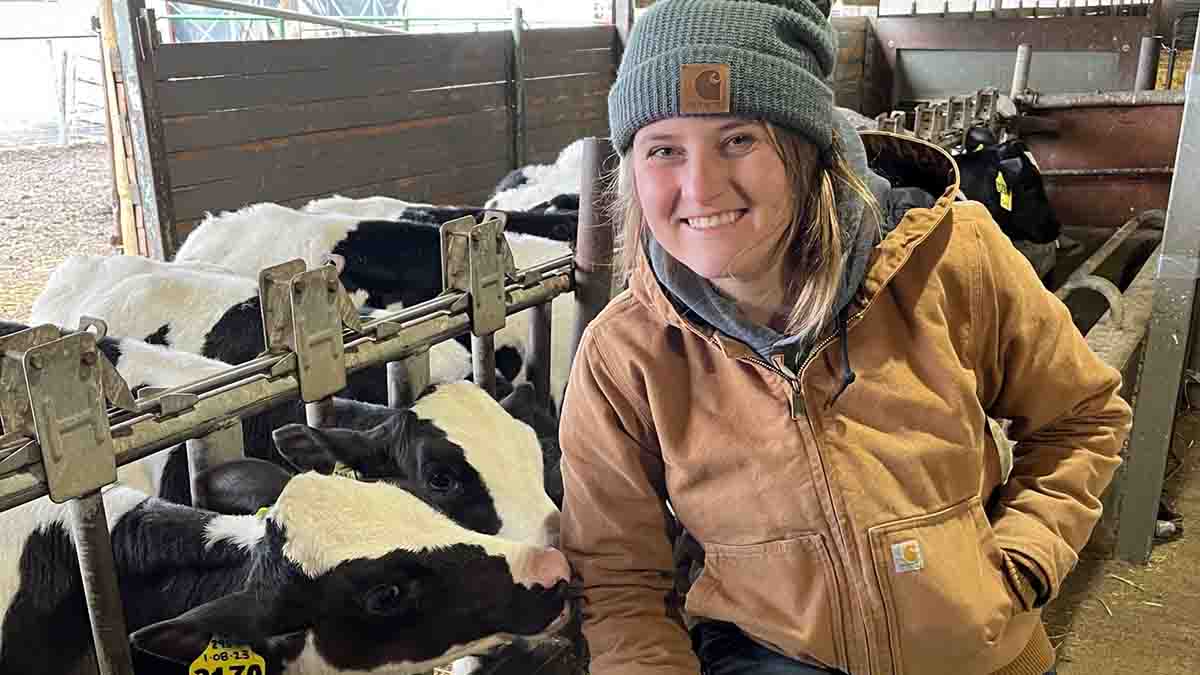
Award-winning Research
“Calves are in flames! I mean they’re inflamed.”
Alexandra Pace, a University of Idaho graduate student studying animal physiology, grabbed her audience’s attention with a bad pun and then explained that her Three Minute Thesis speech would address a “burning” question facing the dairy industry.
Pace’s punchy synopsis of her research on the effects of wildfire smoke on dairy calf health won second place in the annual Three Minute Thesis competition, both within the university and at the state level. In fact, U of I students swept the top three positions in the state competition, hosted Feb. 6 on the College of Southern Idaho campus in Twin Falls. Abbey Rode, a master’s student in psychology, claimed first for her speech on sentencing inequities in the criminal justice system and Yoram Terleth, a doctoral student in geology, placed third for his speech on the loss of glaciers.
The competition was developed by the University of Queensland, Australia.
Pace, of Walton, Nebraska, is studying under Amy Skibiel, an associate professor specializing in lactation and environmental physiology, and is on track to earn her doctorate in the spring of 2025.
Pace was also the top-ranked presenter at the Conference of Research Workers in Animal Diseases, hosted in Chicago in late January. She presented her 2022 research on the pulmonary responses of dairy calves to wildfire smoke.
She and Skibiel followed the same group of calves over time — before, during and after an extremely smoky wildfire season. They found the calves had more inflammation throughout the body immediately following smoke exposure, as well as changes in metabolism. The summer after the smoky season, they conducted a follow-up study assessing the effects of wildfire smoke on the calf lung by looking at cell populations and using lung ultrasounds.
They hypothesize that calves exposed to smoke may grow to be cows that produce less milk or suffer from chronic illness. They expect wildfire smoke will become increasingly significant for the dairy industry as blazes are becoming more common and more severe.
“The cool part about it is we have seen similar changes year to year,” Pace said. “We think this has implications on dairy production. We think it’s important for dairy producers to understand this.”
In May 2023, they received a four-year, $772,000 grant from the U.S. Department of Agriculture’s National Institute of Food and Agriculture to evaluate the mechanisms contributing to inflammation in smoke-exposed dairy cows and calves and to characterize immune cell populations in bovine lungs following smoke exposure.
The grant will fund construction of environmental chambers, in which they’ll be able to manipulate smoke levels to compare health changes in calves at various levels of exposure against a control group with no smoke exposure. They’ll also be testing a potential solution for dairy farmers — the use of air filters designed to suck in and clean automobile exhaust in urban areas. The filtration study will be done in an open-air barn in Moscow. Those trials will commence this summer.
“Ultimately, our goal with all of this work is to educate producers, stakeholders, Extension educators and veterinarians on what the risks are in cattle associated with wildfire smoke exposure and develop guidelines that those individuals can implement to protect their herds,” Skibiel said.
Pace is drafting a doctoral dissertation on her smoke-exposure research that will include five chapters, each comprising about 60 pages of data and observations. In her view, the key to effectively distilling so many facts into a three-minute presentation was to focus on telling a compelling story and to strive to keep the audience engaged.
“We’ve been trained to talk at such a scientific level about the research, then all of a sudden you’re switching gears to this really general audience, but I think it’s an important skill to learn,” Pace said. “It makes you think, ‘What are the main points of this research?’ and, ‘this is why you should care.’”
Representatives from the College of Graduate Studies helped train the U of I Three Minute Thesis presenters on public speaking and stage presence. Each presenter was allowed one slide to use as a visual display.
“I love sharing this research,” Pace said. “I think that’s what gets people excited about it.”
The ongoing research projects are funded by a four-year, $771,596 USDA-NIFA Agriculture and Food Research Initiative grant under award No. 2023-67016-39658, of which 100% is the federal share.
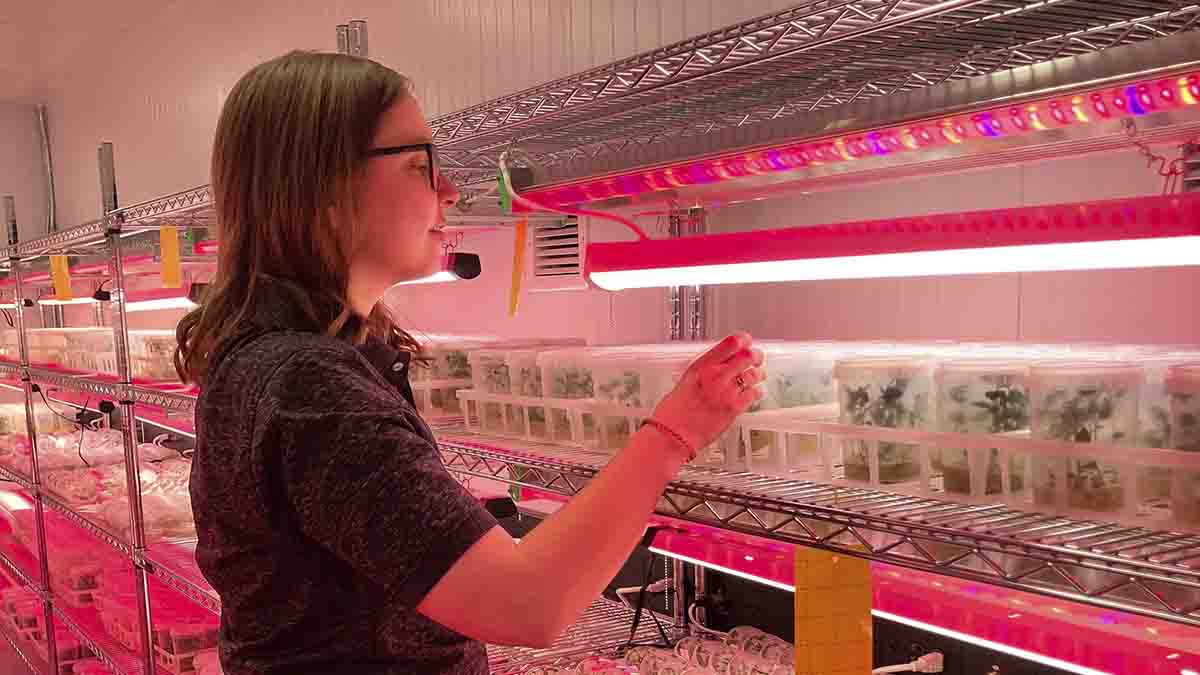
New Seed Potato Germplasm Program Director
As the new director of University of Idaho’s Seed Potato Germplasm Program, Kayla Spawton oversees a modern, new facility and holds a position that is essential to one of the state’s largest and most celebrated industries.
Sixty percent of all potatoes consumed in the U.S. and 90% of Idaho potatoes can be traced back to the Moscow laboratory, which produces plantlets and mini-tubers used in the initial phase of seed potato production. Potatoes remain Idaho’s largest cash crop, generating $1.3 billion in revenue during 2023, U of I agricultural economists estimated (pdf).
“That’s why I wanted to get into applied research — to be a part of a team that’s making a difference in helping out farmers and getting food to folks,” Spawton said.
U of I moved seed potato germplasm production into its current state-of-the-art laboratory in the spring of 2022. Spawton assumed the director’s position in late February 2024. The program’s part-time lab manager, Shannon Kuhl, ran the new facility on an acting basis for the year and half prior to Spawton’s hiring. The staff also includes a part-time greenhouse manager and a team of undergraduate workers who help with tissue culturing and greenhouse work.
Spawton was raised in California and earned a bachelor’s degree in ecology, evolution and biodiversity from University of California-Davis in 2014, minoring in fungal biology and ecology. She then worked for a few years as a microbiology research assistant with an agriculture biotech startup company, evaluating the ability of microbes to increase yields and stress tolerance of major crops. She returned to UC Davis to manage a project to monitor streams for the causal agent of sudden oak death, which is a disease affecting native California coastal forests and nurseries.
In 2023, she earned a doctorate in plant pathology from Washington State University, researching a fungal disease affecting spinach grown for seed, as well as fresh market and processing spinach.
“My Ph.D. was very focused on working with growers and seed companies,” Spawton said. “I really enjoy working closely with those who have other roles in agriculture.”
While Spawton’s background is in true seed, potato seed is propagated vegetatively — asexually producing clones by raising whole plants from stem cuttings or tubers. The lab produces both disease-free plant cuttings, which can be grown into a potato plant, and tiny potatoes known as mini-tubers. These plantlets and mini-tubers are shipped to early generation seed producers throughout the world.
“The program is a unique service to the potato industry in Idaho, but also nationally and internationally,” Spawton said. “For example, we just sent plantlets to Egypt.”
The lab starts with tubers, which are sprouted and established in tissue culture. The shoots are carried through virus cleanup and grown into new plantlets for several generations, until staff can be assured that regulated pathogens have been eliminated. To avoid the possibility of contamination from soil, plantlets are raised in a sugary gelatin-like substance, and mini-tubers are raised in perlite.
The lab stores experimental lines and varieties for the Tri-State Potato Research and Breeding Program, which is a regional collaboration involving U of I, Oregon State University, Washington State University, the potato commissions of the three states and the U.S. Department of Agriculture’s Agricultural Research Service of Idaho and Washington. They also clean and maintain lines for paying customers.
Spawton has several research projects in mind for the laboratory. First, her and her team are interested in researching methods to boost the efficiency of the program’s mini-tuber production. Second, the laboratory recently added technology to cryogenically preserve potato plant meristems for greater storage stability and longer shelf life, and the staff will research how to use cryogenics in its process of virus cleanup. Finally, they plan to evaluate methods for storing other crop lines.
“That’s something we’re interested in exploring. We’ll just have to be thoughtful of what we take on,” Spawton said. “I’m lucky to be coming into a facility that’s only a few years old. We have a lot of resources here — a lot of room to expand — which is a very nice situation for the program.”
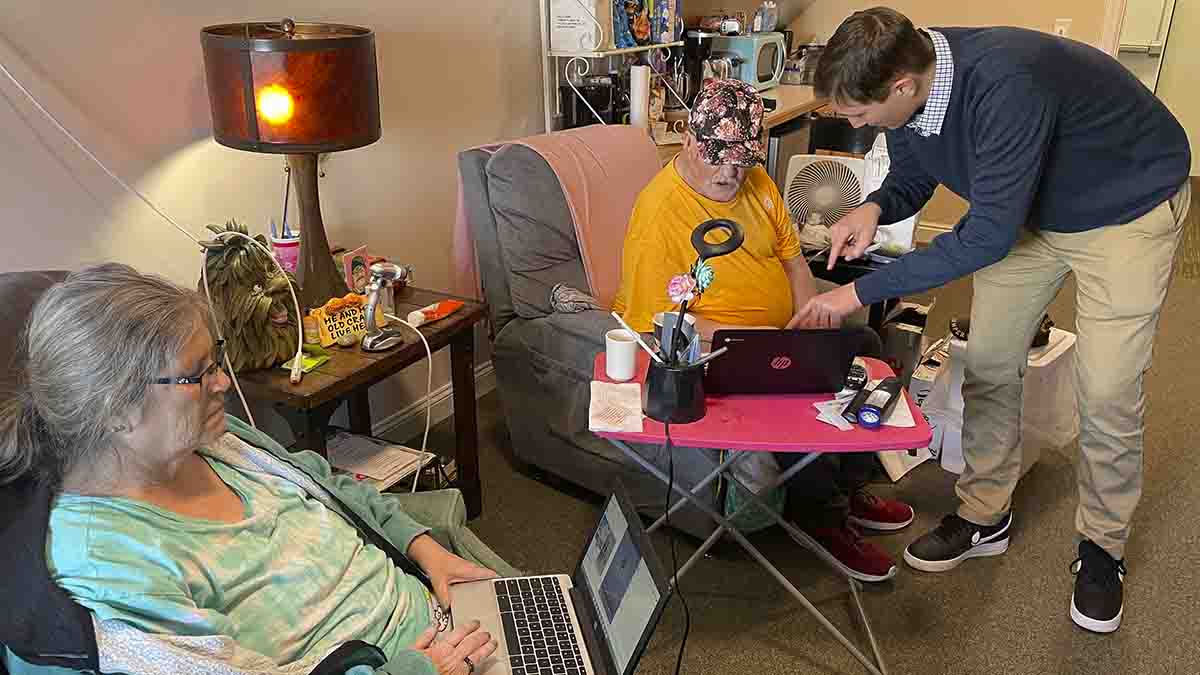
Digital Miracle Workers
Ray and Tammy Nash have reconnected with out-of-state family members and are back in daily communication with their children following 21-year-old Britton Bolgen’s January 2024 visit to their American Falls assisted living center.
Bolgen, who is serving as an AmeriCorps member with University of Idaho Extension’s Digital Economy Program (DEP), announced to the Nashes and others in the Edgewood Spring Creek dining room that he’d give a used Chromebook laptop to anyone willing to meet with him for a few hours of free beginner computer training.
The aim of DEP is to reduce the digital divide, or gap between those who have access to the internet and reliable devices and those who do not, by teaching rural Idahoans basic computer skills, and the results can be life changing for participants.
Faces and Places
Kara Richardson Whitely, whose memoir “Gorge: My Journey Up Kilimanjaro at 300 Pounds” will be made into a movie starring This Is Us actress Chrissy Metz, will share her message about body inclusivity and untapped opportunities for the plus-sized audience at University of Idaho on April 5 as the 2024 Margaret Ritchie Distinguished Speaker.
The event will be hosted in the Bruce M. Pitman Center’s Borah Theatre, beginning with refreshments and mingling from 1-2 p.m., Whitely’s presentation from 2-3 p.m., a question-and-answer session from 3-3:30 p.m. and a book signing from 3:30-5 p.m. Her talk will also be streamed live on Zoom, with the meeting ID 832 0169 8145 and the passcode 040523.
Margaret Ritchie School of Family and Consumer Sciences faculty member Shiyi Chen and her graduate students, Rebecca Sermeno and Nikki Hodge, recently presented their research on children’s self-regulated learning and early science education at the 2024 Cognitive Development Society conference in Pasadena, California. Their work is funded by the U.S. Department of Agriculture’s National Institute of Food and Agriculture (grant No. 2022-68018-36258).
Shiyi Chen, an assistant professor of child development with the Margaret Ritchie School of Family and Consumer Sciences, will have three undergraduate research assistants present their studies during the IDEAS Student Research Symposium, which will be hosted by the College of Education, Health and Human Sciences on April 4. Sydney Murphy will present her research on children’s willingness to try novel foods; Michale Green and Dylan Cooney will present their research on children’s metacognition and aggressive behavior.
Associate professors Michael Strickland and Zachary Kayler recently joined The Vandal Theory podcast to discuss the Deep Soil Ecotron.
Chelsey Byrd Lewallen, an instructor within the Margaret Ritchie School of Family and Consumer Sciences, will sign copies of her new book “Clothing Alterations and Repairs: Maintaining a Sustainable Wardrobe,” from 3-5 p.m. Saturday, April 13 at the 1912 Center Reception Gallery, 412 E. Third St., Moscow. Lewallen will also conduct a clothing alterations and repairs demonstration and is asking attendees to bring a garment in need of repair and learn how to replace zipper heads, repair damaged fabric and reattach buttons.
Eleven CALS student members of the Minorities in Agriculture, Natural Resources and Related Sciences (MANRRS) club and advisor Sharon Murdock recently attended the MANRRS National Conference in Chicago where they were able to network and attend a career fair and professional development workshops. Madi Rudner, a junior from Filer studying agricultural education, and Juan Luis Jaquez, a senior from Rupert studying animal and veterinary science: pre-veterinary science option, were recognized as AgWest Farm Credit Scholars. Brianna Leon, a sophomore from Rupert studying animal and veterinary science: pre-veterinary science option, was recognized as an Animal Health and Care Academy Fellow.
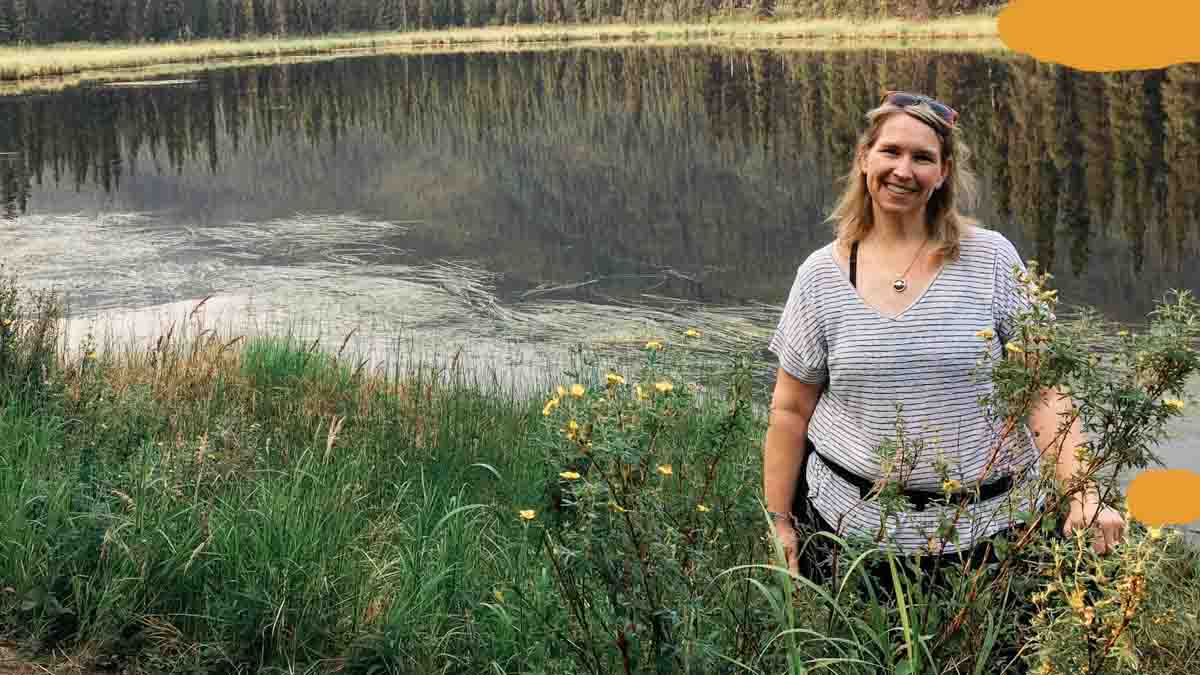
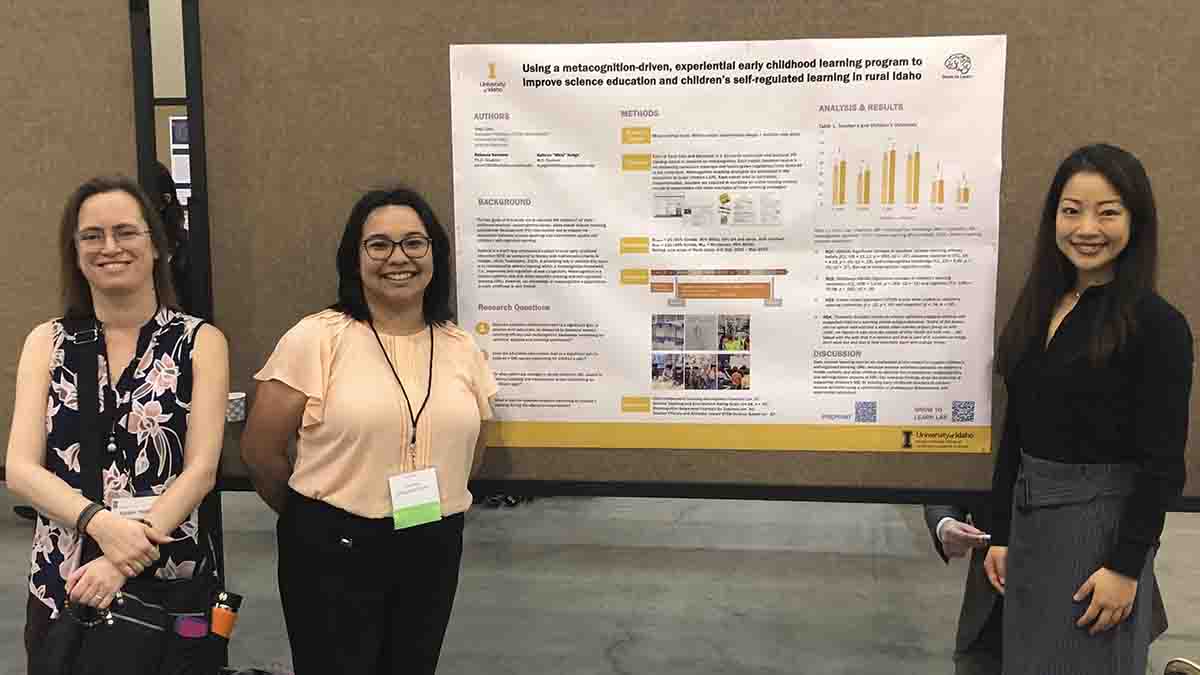
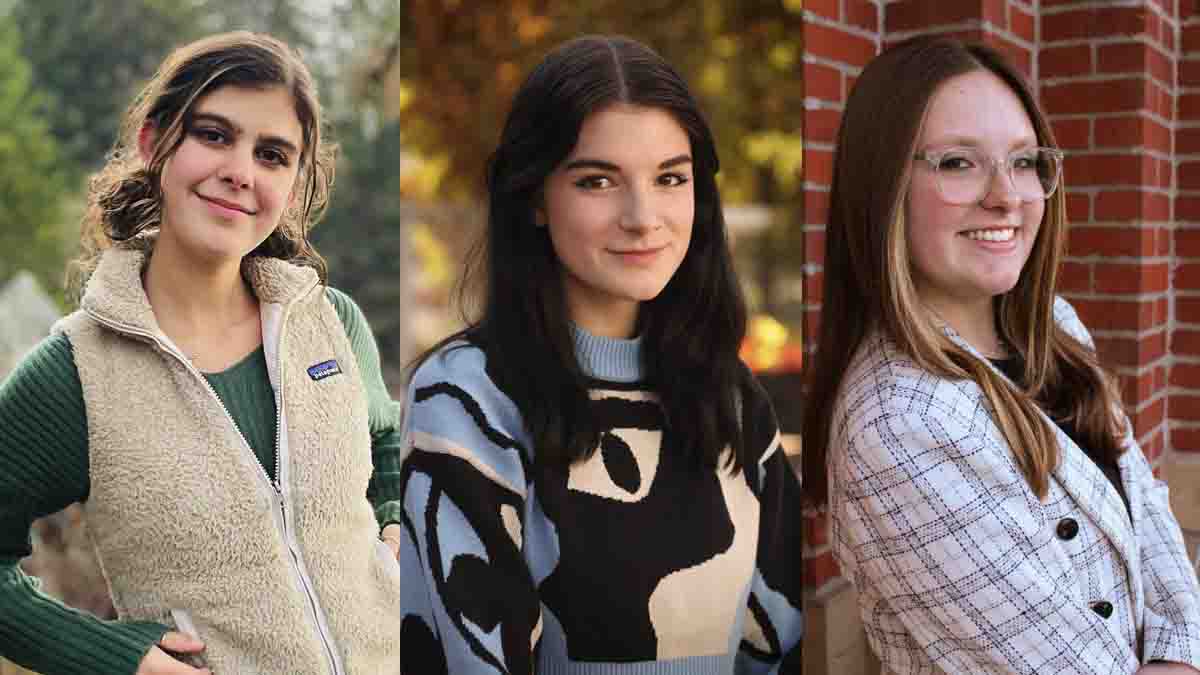

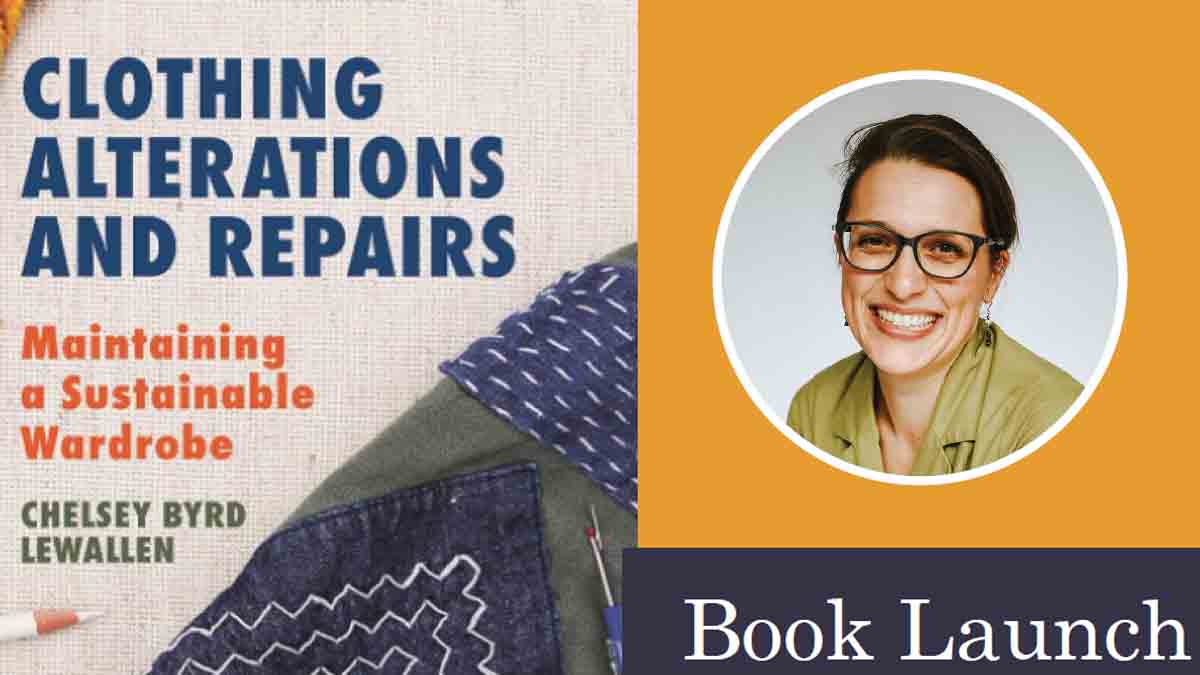
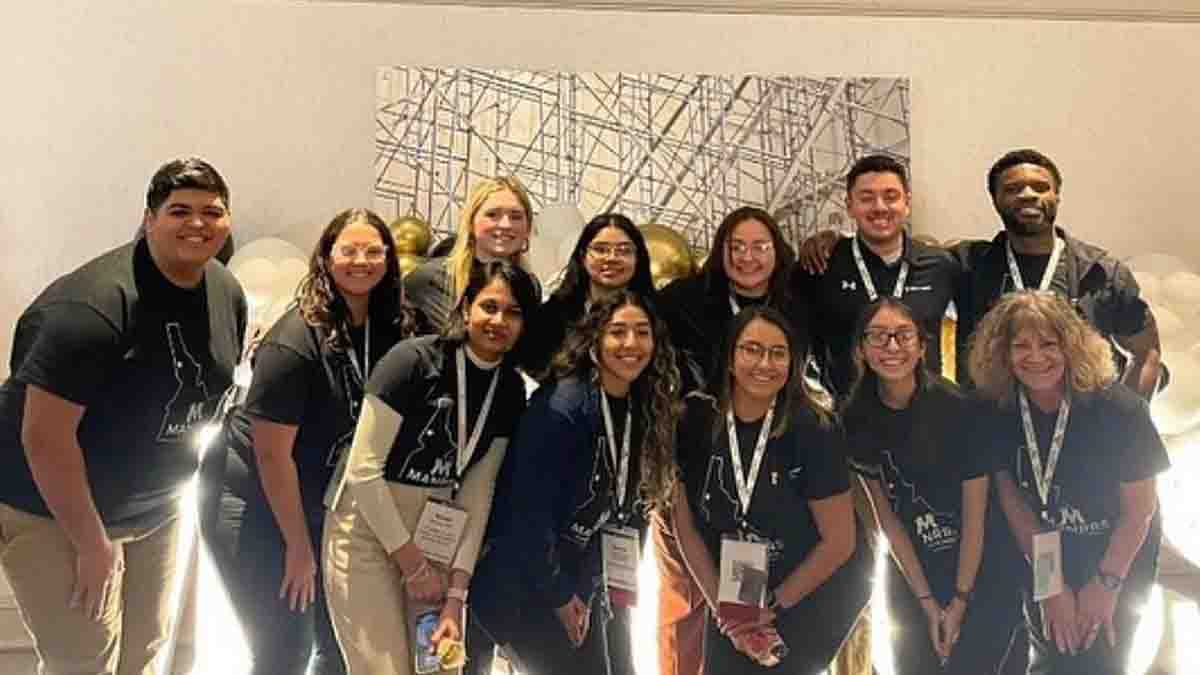
Events
- April 2-3 — Vandal Giving Day, Online
- April 5 — Moving Mountains for Body Inclusivity, author Kara Richardson Whitely, Moscow
- April 8-11 — 2024 UI Extension Annual Conference, Moscow
- April 9 — All CALS Day (for CALS faculty and staff), Moscow
- April 13 — CALS Wine and Cheese Tasting, Moscow
- April 18 — Pressure Canning Made Easy, Online
- April 24 — CALS Awards Banquet, Moscow
- April 25 — Moss Greenhouse Vandal Night, Jerome
- April 25, May 23 — Kids in the Kitchen Cooking Club, Online
- June 22-23 — Grass Identification Course, Rinker Rock Creek Ranch near Hailey
- June 24-26 — Data Monitoring Blitz, Rinker Rock Creek Ranch near Hailey
- July 17 — Twilight Tour, Aberdeen Research and Extension Center







